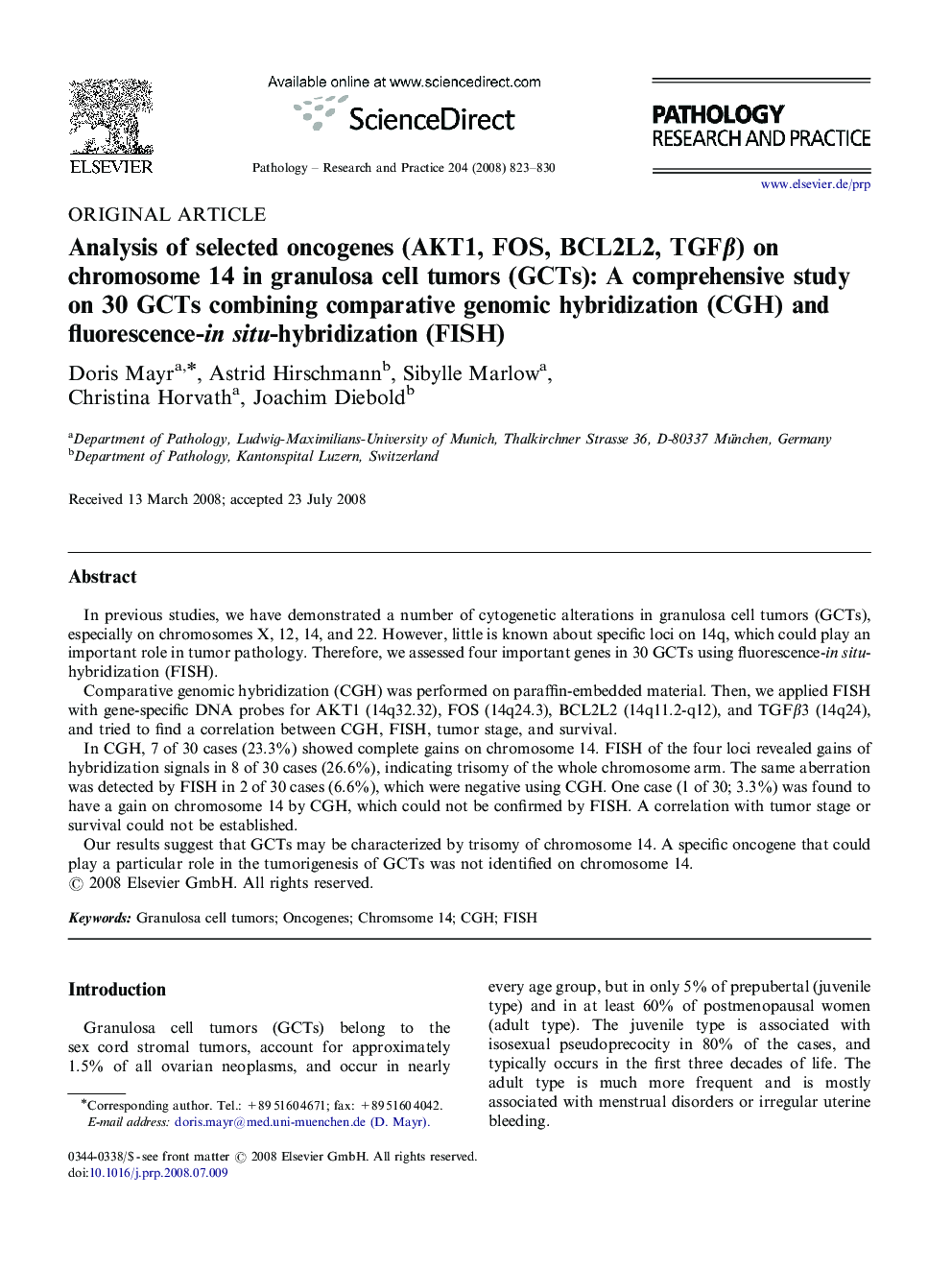| Article ID | Journal | Published Year | Pages | File Type |
|---|---|---|---|---|
| 2156640 | Pathology - Research and Practice | 2008 | 8 Pages |
In previous studies, we have demonstrated a number of cytogenetic alterations in granulosa cell tumors (GCTs), especially on chromosomes X, 12, 14, and 22. However, little is known about specific loci on 14q, which could play an important role in tumor pathology. Therefore, we assessed four important genes in 30 GCTs using fluorescence-in situ-hybridization (FISH).Comparative genomic hybridization (CGH) was performed on paraffin-embedded material. Then, we applied FISH with gene-specific DNA probes for AKT1 (14q32.32), FOS (14q24.3), BCL2L2 (14q11.2-q12), and TGFβ3 (14q24), and tried to find a correlation between CGH, FISH, tumor stage, and survival.In CGH, 7 of 30 cases (23.3%) showed complete gains on chromosome 14. FISH of the four loci revealed gains of hybridization signals in 8 of 30 cases (26.6%), indicating trisomy of the whole chromosome arm. The same aberration was detected by FISH in 2 of 30 cases (6.6%), which were negative using CGH. One case (1 of 30; 3.3%) was found to have a gain on chromosome 14 by CGH, which could not be confirmed by FISH. A correlation with tumor stage or survival could not be established.Our results suggest that GCTs may be characterized by trisomy of chromosome 14. A specific oncogene that could play a particular role in the tumorigenesis of GCTs was not identified on chromosome 14.
